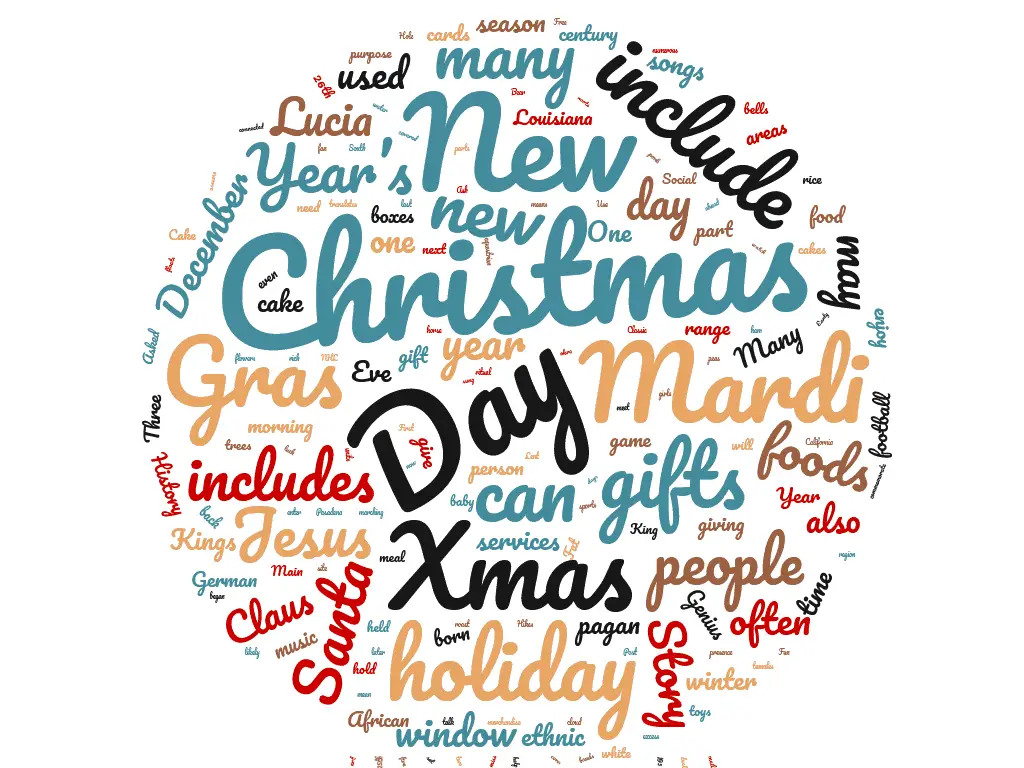People love wintertime for many reasons. One reason is the wide range of celebrations during this time of the year. With 10 winter festivals and holidays around the world, there is something for everyone:
1) Hanukkah
The Festival of Lights is observed for 8 days.
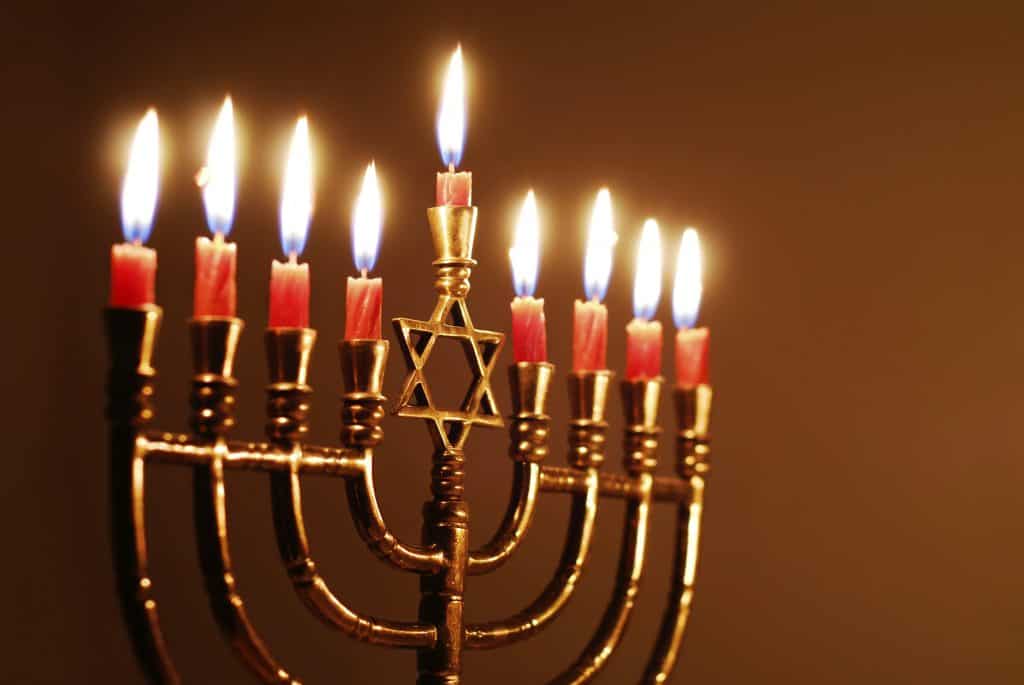
The exact dates are based on the Hebrew calendar. It commemorates the Jewish people’s reclaiming of Jerusalem’s Holy Temple. Celebrating Hanukkah includes:
- The lighting of the Menorah. Each night, one of the candles are lit.
- Special blessings and prayers are recited, and the family may sing traditional songs. Some families attend worship services at the synagogue.
- As oil was used for the Hanukkah miracle, fried foods are customary. Examples include potato latkes, jelly doughnuts, and challah bread.
- Dreidel is a Hanukkah game enjoyed by children. Hebrew letters are on the spinning top.
- Gelt is gold foil-wrapped chocolate coins. It is used in the dreidel game and as small gifts.
- Gift-giving is customary during this holiday. Some families give gifts on each night of Hanukkah. Others prefer to give to charity.
2) Three Kings Day
Three Kings Day is observed on January 6th.
This Christian feast day has a dual meaning. As it is the day God reveals Jesus Christ as human, the day is also called Epiphany.
It also commemorates the three Wise Men bringing gifts to the newborn Jesus.
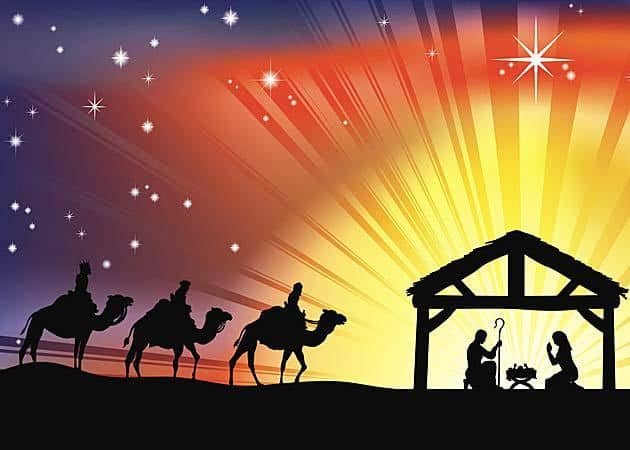
While there are variations of this holiday around the world, it is primarily celebrated in Hispanic communities.
Traditions include Kings’ cake or bread containing a tiny figurine of Jesus, gifts for children, community celebrations, and family dinners. It is referred to as the 12th day of Christmas.
3) Winter Solstice
Winter solstice is observed on the year’s longest night.
Because the earth is tilted far from the sun, daylight is shorter than on any other day of the year. It celebrates the beginning of a new solar year.
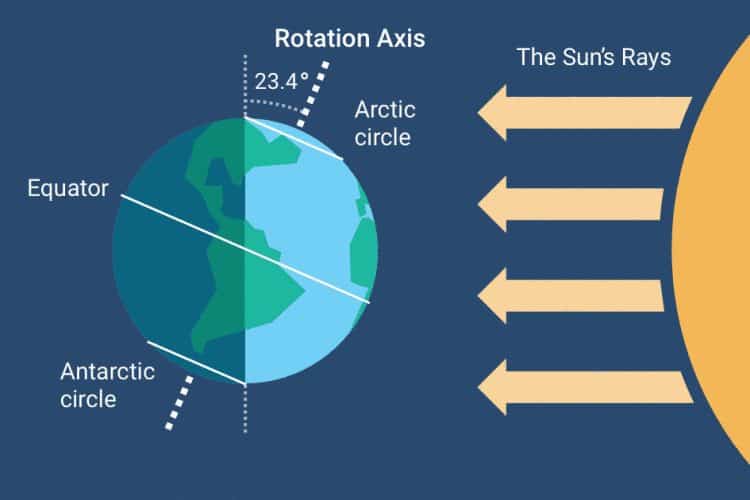
While winter solstice is celebrated in different ways around the world, it originated in ancient pagan times.
Activities include decorating homes with herbs and holiday colors, giving gifts, feasting with friends and family, and lighting candles to welcome the sun.
As it is a pagan celebration, it includes honoring the Goddess and singing pagan songs and chants.
4) St. Lucia Day
St. Lucia, or St. Lucy, was a Christian martyr. She died by the sword because she did not burn when she was set on fire.
While Lucy’s Feast is celebrated around the world by Catholics and some Protestants, St. Lucia Day is most widely celebrated in Sweden and other Scandinavian countries.
In Sweden, the holiday also includes the tradition that Lucia was the Biblical Adam’s first wife.
Little girls wear white gowns and crowns with candles on their heads. One girl is chosen to represent Lucia, the bearer of light. Little boys wear white gowns and carry stars.
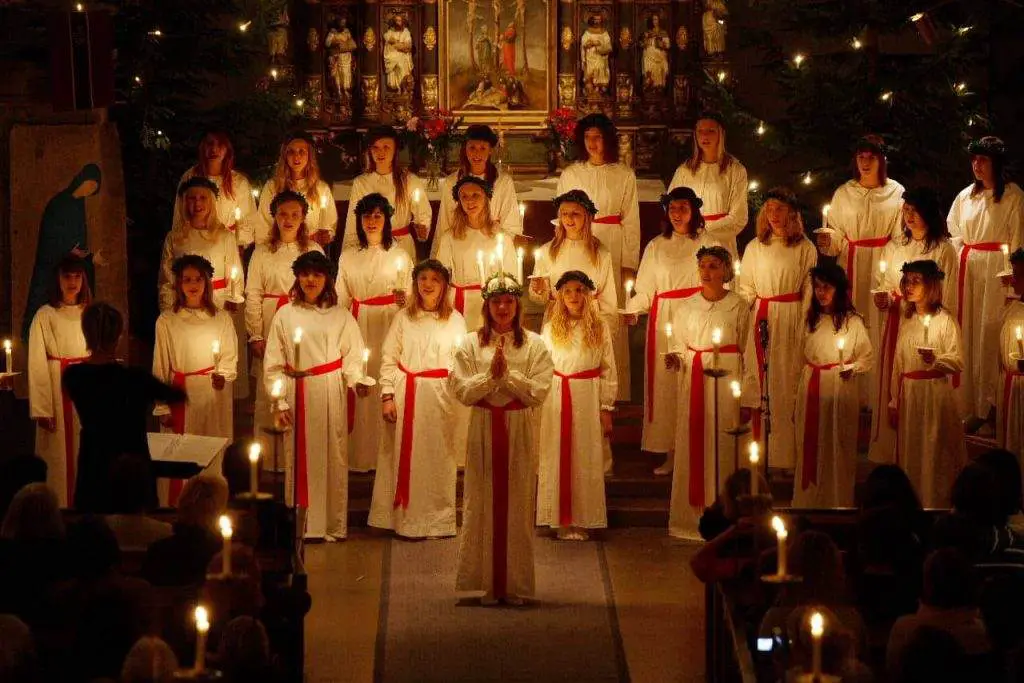
St. Lucia celebrations include singing songs. Special foods are eaten, such as cat-shaped saffron buns, and ginger snaps. The holiday is observed on December 13th.
5) St. Nicholas Day
St. Nicholas Day is observed around the world. In the United States, it is most commonly celebrated among Dutch, Belgian, Polish, and German communities.
On December 5th, individuals hang stockings by a fireplace or place shoes outside the bedrooms. Family members awaken the next morning to find sweet treats and gifts.

In some locations, there are St. Nicholas Day parades, and holiday feasts.
While there are variations depending on location, celebrations include a menacing figure meant to scare children into not misbehaving.
6) Christmas
For most people, Christmas is the most well-known holiday in the wintertime. Observed on December 25th, it celebrates Jesus Christ’s birth, although no one knows the exact day Jesus was born.

There are many traditions and customs associated with Christmas:
- For many individuals and families, church attendance is an important part of Christmas. Some churches hold services on Christmas Day, while others have services on Christmas Eve.
- Christmas decorations have dated back to the 15th century. Popular examples include bells, candy canes, wreaths, angels, stockings, poinsettias, and candles. German Lutherans introduced the Christmas tree during the 16th century.
- Nativity plays and Nativity displays celebrate the scene where Jesus was born.
- Christmas music ranges from traditional hymns and carols to popular Christmas songs. Music is played or sung in homes, schools, and churches. It is broadcast on the radio and in public areas. Many popular singers and groups record Christmas albums, too.
- Christmas cuisine varies depending on location. Families and friends join together for a holiday meal. Some examples include turkey, potatoes, gravy, and a variety of pies. Christmas cookies are made in shapes of trees, bells, and Santa Claus.
- There are many variations of Christmas cards. Before Christmas, people send or give cards to family members, friends, and other important people in their lives. Cards can be purchased individually or in boxes, or you can make your own.
- Many countries offer special stamps to use during the Christmas season. They are used on Christmas cards and other mail. They have the same postage rate as other postage stamps and can be used year-round.
- For most people, giving gifts is a part of Christmas. Gifts can range from simple and inexpensive to elaborate. Depending on local customs, gift-giving can be limited to family members and close friends, or extend to coworkers, teachers, and neighbors. While gift-giving has become quite commercial in recent decades, it does not need to break your budget. You can find many inexpensive gifts that your recipients will appreciate, and you can even make gifts yourself.
- Holiday figures vary, but Santa Claus is the most common. The Dutch tradition of Sinterklaas was the inspiration for Santa Claus. The modern presentation of Santa originated in New York, where there was a large Dutch population. During the holiday season, Santa appears in public places to delight young children who ask for toys to be under their trees on Christmas morning. Many children also continue the practice of writing letters to Santa Claus, although modern children now have the option of sending letters to Santa by email.
7) Boxing Day
Boxing Day is observed on December 26th and started in the United Kingdom. There are two general variations of this observance.
One was tradesmen collecting boxes of gifts or money after Christmas. This was considered to be a token of appreciation for their service.

A second tradition is giving gifts and money to the less fortunate. Some believe it started with the tradition of Alms Boxes at churches. Donations for the poor were collected in these boxes.
8) Kwanzaa
The concept of Kwanzaa was created by Ronald McKinley Everett in 1966. Its purpose is honoring African heritage, and promoting the unity of all individuals with African ancestry.
Kwanzaa starts on December 26th and ends on January 1st. Households are decorated with African art, colorful cloths, and fresh fruits.
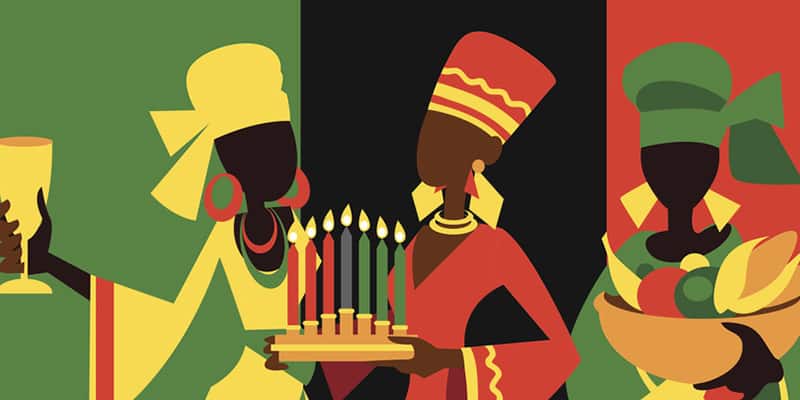
Celebrations can include special readings, music, performances, and candle-lighting. Kwanzaa also includes a feast and gift-giving.
9) New Year
Numerous cultures and religions have special observances for a new year.
With the Gregorian calendar, most people are familiar with the holiday that falls on January 1st, as it represents the beginning of a new year.
For many, the holiday starts on December 31st. Fireworks are custom in some areas. New Year’s Eve parties are popular, too.
Friends, neighbors, and others come together to wait for the new year to begin. Gatherings range from small to elaborate parties and include alcoholic beverages.
Party-goers are joyful when the clock strikes midnight. Some places have special observances. New Year’s Eve at Times Square in New York City is one that has existed for generations.
Locals and tourists alike enjoy party favors and confetti as they wait for the famous ball to drop. “Auld Lang Syne” is played when the New Year arrives.
Whether individuals celebrate New Year’s Eve or not, New Year’s Day includes many activities that people enjoy. Parades are one example.
While New Year’s Day parades can be found throughout the world, the Tournament of Roses Parade is the most well-known in the United States.
It is held in the morning before the Rose Bowl football game starts.
The parade includes equestrian units, marching bands, and large floats covered with flowers.
The parade, from Pasadena, California, has been held for more than a century. Individuals who cannot attend in person can watch it on television.
New Year’s Day means sports. This includes the NHL Winter Classic, football and horse racing in England, First Day Hikes in America’s parks, and college football games.
The Polar Bear Plunge is available in many countries, including Canada and the United States. Individuals enter icy-cold water, for the purpose of raising money for charity.
Some people commemorate New Year’s Day by attending concerts or other entertainment or watching it on television.
For many people, it is a tradition to attend church services. In some places, babies born on this holiday are given special gifts or gift certificates for baby-related merchandise.
Families enjoy meals together and have certain foods for New Year’s Day dinners. Foods chosen for the holiday meal may be related to a person’s ethnic roots or geographical region.

In America’s South, for example, you may find cornbread, sweet potatoes, black-eyed peas, and ham.
In other regions, you may find roast pork, turkey, or tamales. New Year’s Day foods are symbolic, representing good luck and prosperity in the year ahead.
10) Mardi Gras
Mardi Gras translates to Fat Tuesday. The celebration starts after Epiphany and ends the day before Ash Wednesday.
The season of Lent includes ritual fasting. Fat Tuesday is a person’s last opportunity to indulge in excess.
While some assume Mardi Gras was based on ancient pagan celebrations, it is more likely connected to Christian traditions.
Early Christians feasted on their favorite foods before the sacrifices of the 40-day Lenten season began. As refraining from eating a favorite food is part of the Lenten tradition, Mardi Gras is a time to over-indulge on rich foods.
Mardi Gras is best known for its presence in New Orleans, Louisiana, although it is observed in numerous other countries and other parts of the United States that have ethnic French populations.
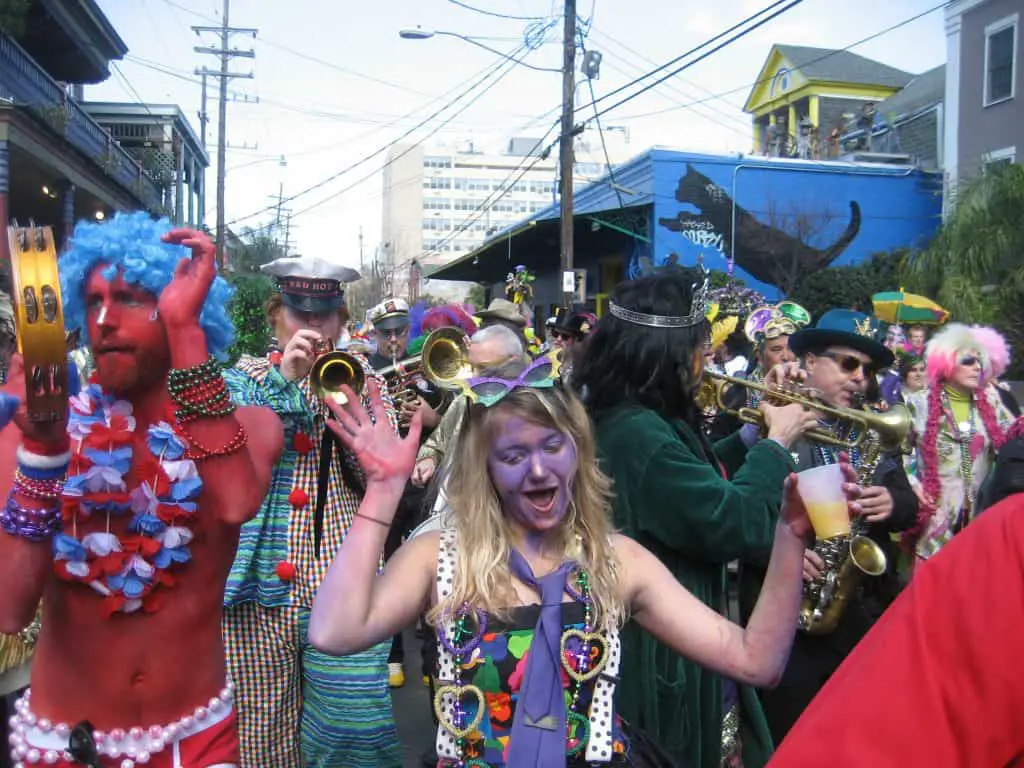
The celebration eventually came to America with French Catholics.
In New Orleans and throughout Louisiana, Mardi Gras celebrations extend for weeks.
Celebrations include wearing masks and costumes, parades, beads and small toys tossed to parade-goers, music, and parties. Special objects include colored doubloons and the Mardi Gras Coconut.
The food at Mardi Gas
For parties or meals with the family, certain foods are associated with Mardi Gras. One example is the crawfish boil. The dish includes crawfish, sausage, corn, and potatoes.
As shellfish is a common ingredient in the cuisine, there may be shrimp and grits, Creole crab cakes, or shrimp and chicken etouffee.
Other dishes may include pancakes, macaroni and cheese, fried okra, red beans, and rice, or dirty rice. A doughnut known as Beignets is popular desserts.
Regardless of location, though, it is not Mardi Gras without a King Cake.
This ring-shaped cake is lightly iced and topped with purple, green, and gold-colored sugars. Some cakes are filled with fruit, nuts, almond filling, or chocolate.
Hidden inside the cake is a small plastic baby. The person whose slice of cake has the baby will be the host of the next Mardi Gras party.
Individuals who do not live in Louisiana, or other areas with large ethnic French populations, do not need to entirely miss Mardi Gras celebrations. Families can hold their own celebrations, and invite their friends and neighbors.
Many traditional Mardi Gras decorations are available online, as well as King Cakes and other traditional foods.
Whether you love or dislike winter in general, you can find many opportunities to celebrate. Your religion or ethnic background may include one or more of these festivals and holidays.
A celebration is an excellent way to bond with your family, spend time with your neighbors and friends, and even meet new people.
With these 10 winter festivals and holidays around the world, there is always something to celebrate and have a good time.
Main Points About Winter Holidays Around the World
- Winter is a festive time of the year as it contains holidays celebrated by people of different cultures, races, and religions.
- Some think of the winter as a time of rest; while to some, it is clearly a time for celebrations, parties, and fun.
- It is an opportunity for many to get-together with families, observe long traditions, share childhood stories around the fire place, frolic and have fun.
- Holidays like Christmas and New Year are celebrated by billions of people and they attract so many festivities.
- Hanukkah, Mardi gras, Kwanzaa, Winter Solstice, Three Kings Day, Omisoka, Las Posadas, Saint Nicholas and Saint Lucia Day are also popular holidays that fall into the winter season.
Conclusion
Hanukkah, Three Kings Day (epiphany), Winter Solstice, St. Lucia Day, St Nicholas Day, Christmas, Kwanzaa, New Year and Mardi Gras.
The list of celebrations in mid-winter around the world could be mad long.
While Hanukkah is exclusive to Jews, St. Lucia Day is unique for Sweden, and now also Norway and Denmark, a celebration of Saint Lucia of Syracuse, girls, and boys, dress up in white and sing early in the morning on this day.
Word Cloud for Winter Holidays Around the World
The following is a collection of the most used terms in this article on the Winter Holidays Around the World. This should help in recalling related terms as used in this article at a later stage for you.
